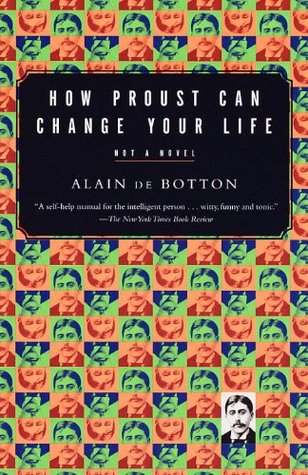More on this book
Community
Kindle Notes & Highlights
Read between
December 7 - December 15, 2022
it was the books, not the lives, that mattered.
that there are two methods by which a person can acquire wisdom, painlessly via a teacher or painfully via life,
“Happiness is good for the body,” Proust tells us, “but it is grief which develops the strengths of the mind.”
“Il pleut des cordes,” to cold weather, “Il fait un froid de canard,” and to another’s deafness, “Il est sourd comme un panier.”
understanding of others did not lead to cheerful conclusions. “I feel infinite sadness at seeing how few people are genuinely kind,” he said,
When you walk around a kitchen, you will say to yourself, this is interesting, this is grand, this is beautiful like a Chardin.
These poor images arise out of our failure to register a scene properly at the time, and hence to remember anything of its reality thereafter. Indeed, Proust suggests that we have a better chance of generating vivid images of our past when our memory is involuntarily jogged by a madeleine, a long-forgotten smell, or an old glove, than when we voluntarily and intellectually attempt to evoke it.
The incident emphasizes once more that beauty is something to be found, rather than passively encountered,
Afraid of losing her, we forget all the others. Sure of keeping her, we compare her with those others whom at once we prefer to her.
a healthy relationship to other people’s books would depend as much on an appreciation of their limitations as of their benefits.
We should read other people’s books in order to learn what we feel; it is our own thoughts we should be developing, even if it is another writer’s thoughts that help us do so.
To make [reading] into a discipline is to give too large a role to what is only an incitement. Reading is on the threshold of the spiritual life; it can introduce us to it: it does not constitute it.


